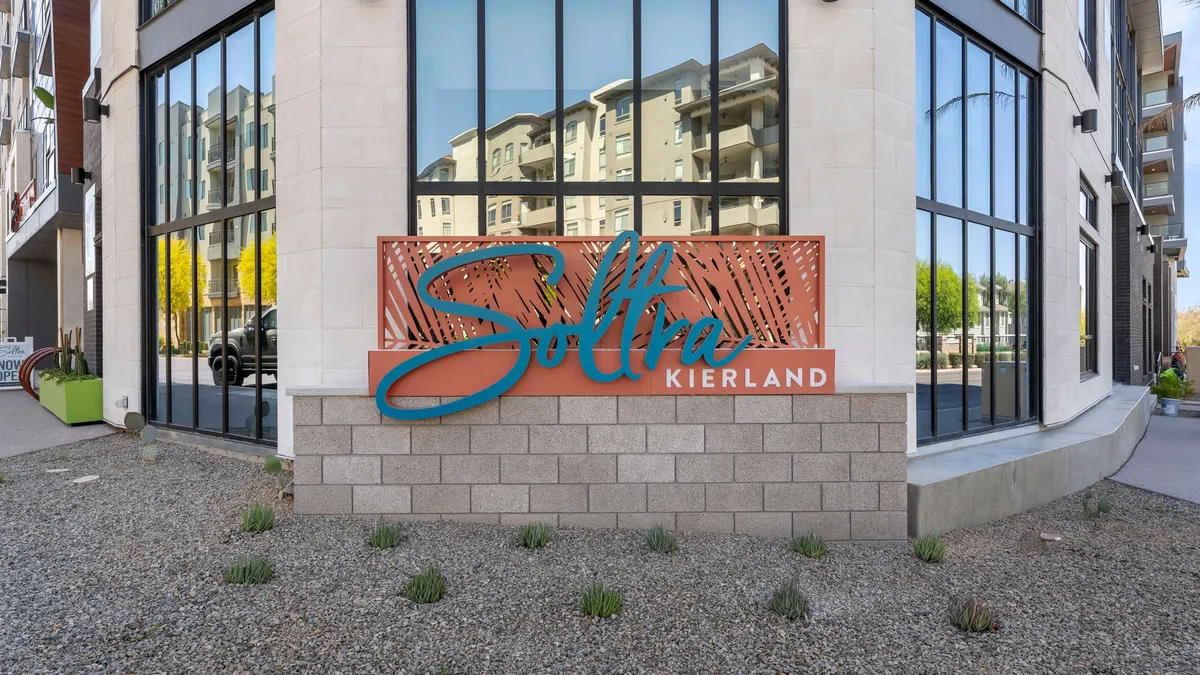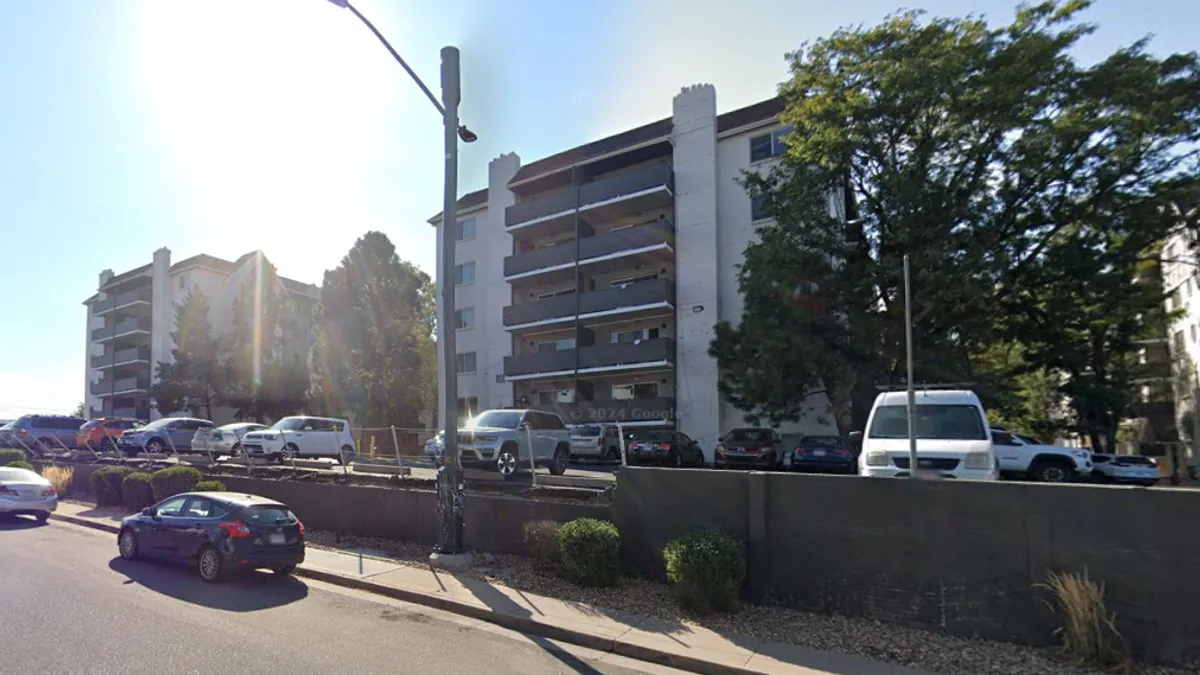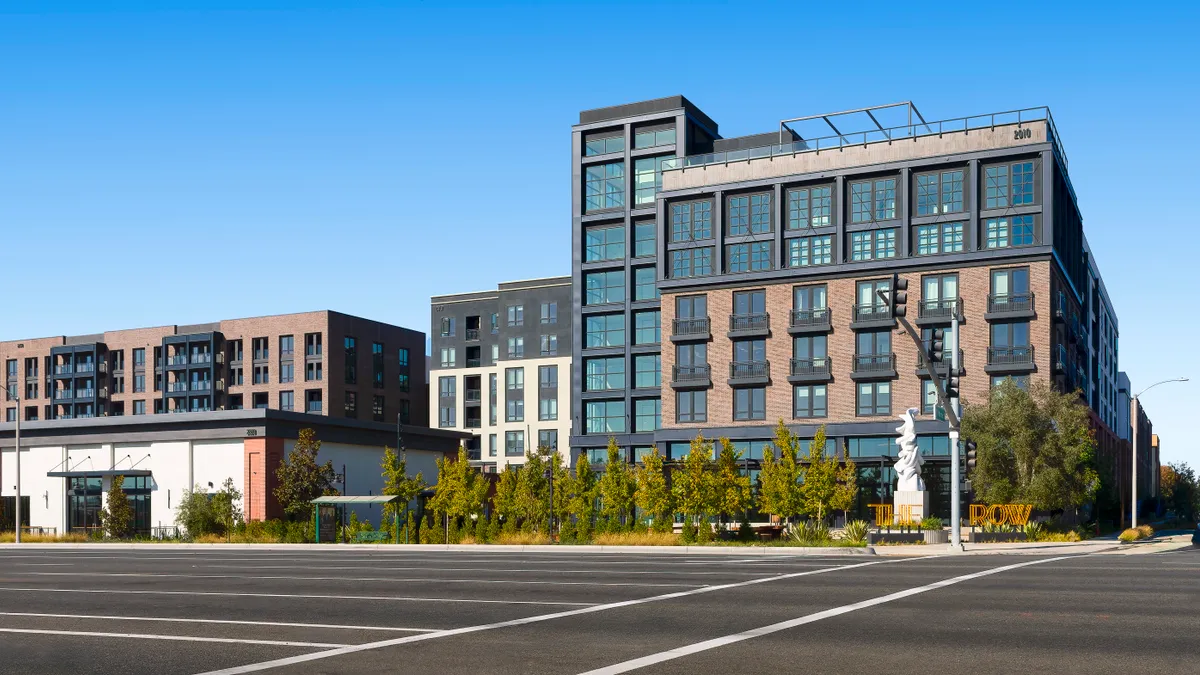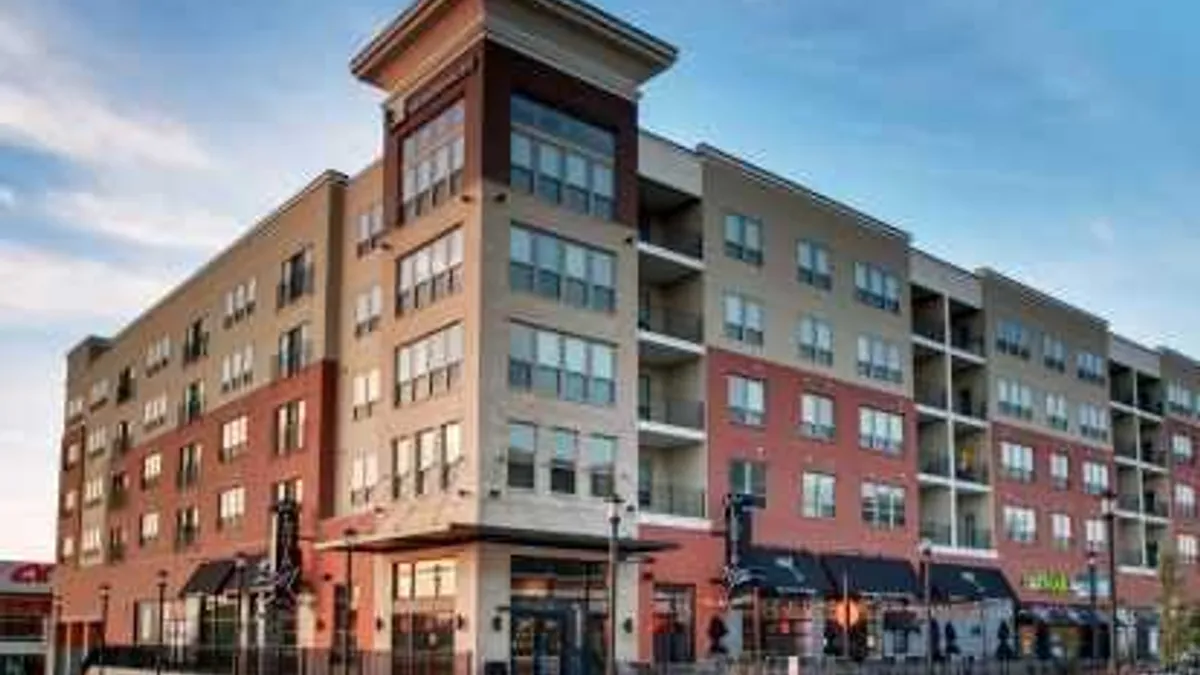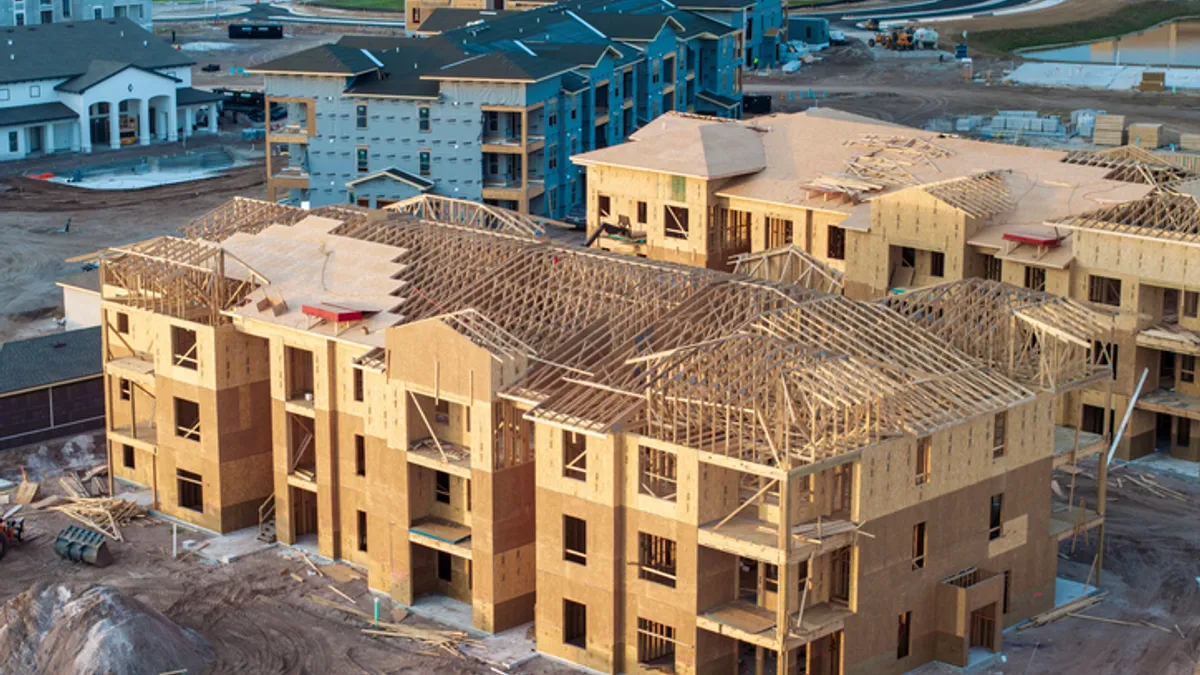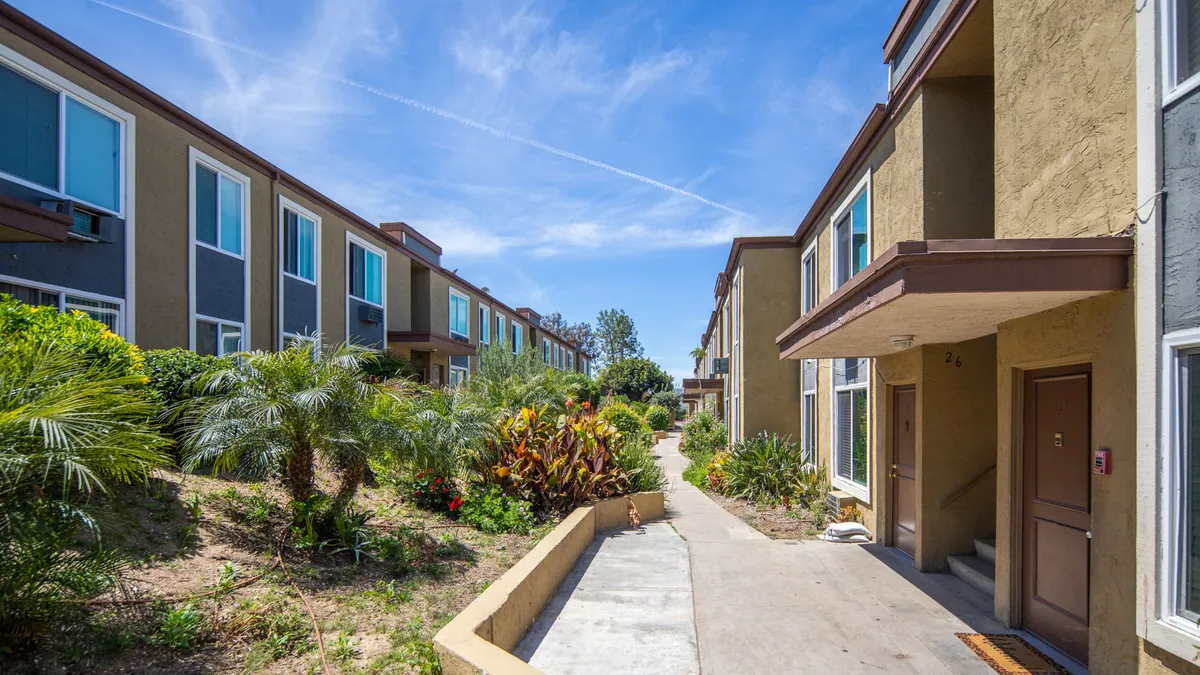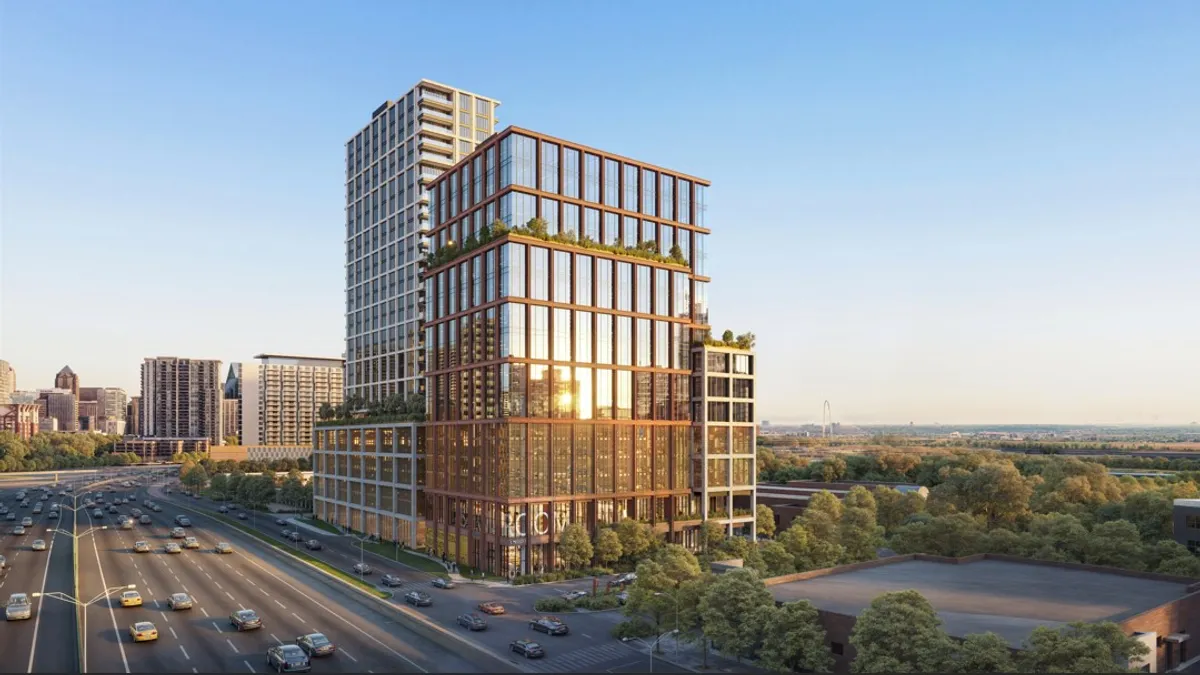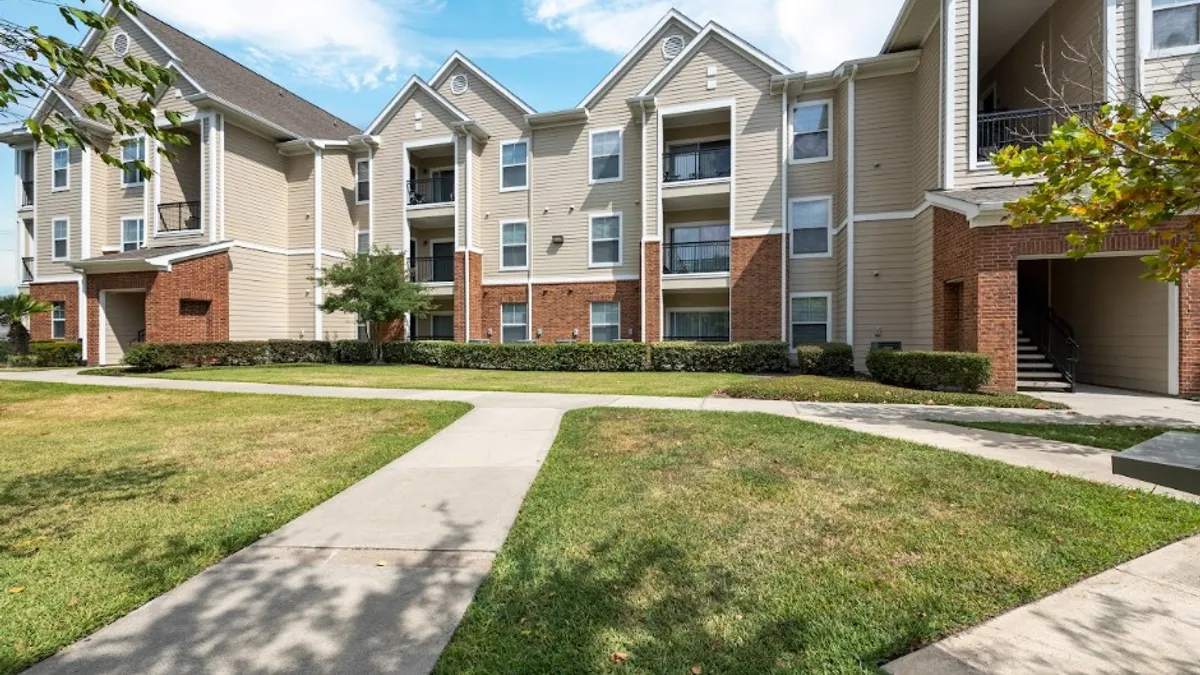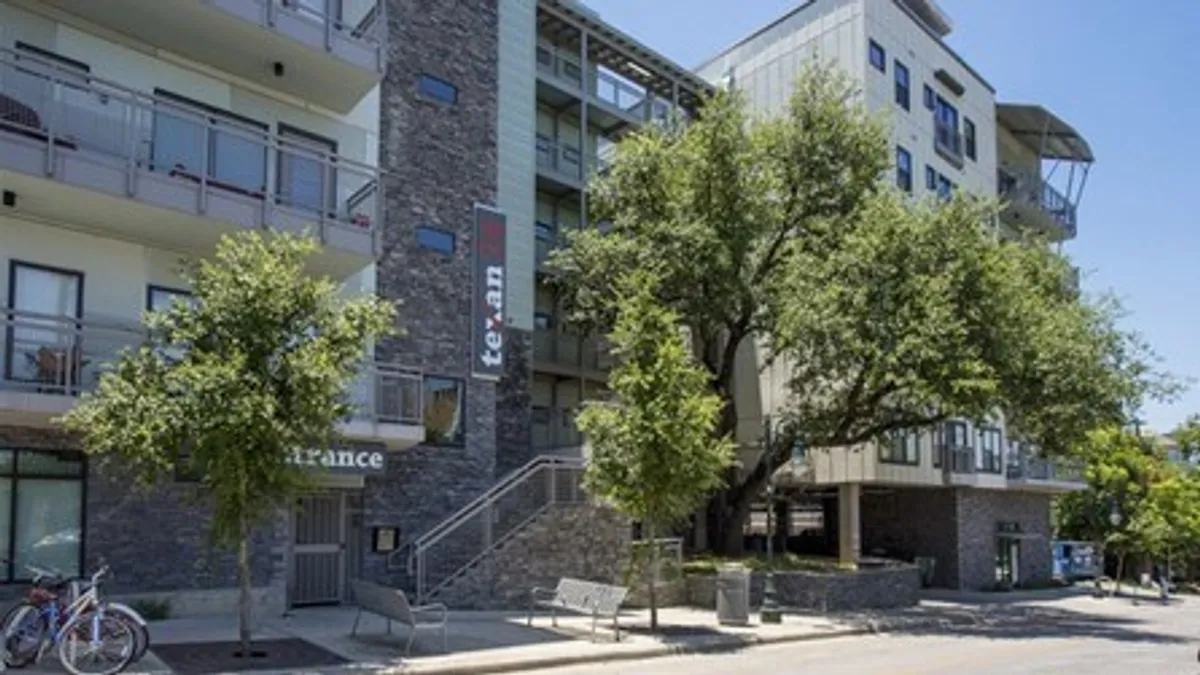Right now, many developers are hitting pause on new multifamily projects. They’re sitting on land they have under control and waiting for the capital markets to improve before they start new apartments.
But there are always exceptions to the rule. One of those is Leon Capital Group. Over the next two months, the Dallas-based holding company that owns, manages and develops apartments plans to break ground on 900 units in the Dallas and Phoenix metros and in North Carolina.
But that’s not all. Leon also intends to start three to four additional projects in 2024, totaling roughly 1,000 apartments, giving it approximately 2,000 new units this year.
“We've always been very flexible because we control a lot of our own capital,” David Cocanougher, president of the multifamily division at Leon Capital Group, told Multifamily Dive. “All of our pre-development [costs] and land equity are house capital. That gives us the ability to move fast and close quickly on sites that we have a high level of conviction on.”
Leon serves as the general contractor on its projects, which gives it an advantage, according to Cocanougher.
“With construction in-house, we are constantly in the market and monitoring the trends,” he said. “We're seeing a dip in overall hard costs. So if I can start a project today, I think I'm hitting the bottom of that cost curve.”
Here, Cocanougher, who has been at Leon for 13 years since working at Dallas-based developer JPI for a decade, talks with Multifamily Dive about the opportunities for developers that start projects this year, construction costs and how his firm views construction technology.
This interview has been edited for brevity and clarity.
MULTIFAMILY DIVE: When do you see construction activity picking up?
DAVID COCANOUGHER: Once rates start to come down and debt starts to become more available, we'll see activity increase. Once activity increases, we'll see that the cost curve starts to go back up. So we're trying to capture this moment in time when there's a low cost on the construction side.
Now, we're seeing this sharp decline in starts. Twenty-four to 36 months from now, that's going to mean low deliveries coming into the market. If I can start today at a lower cost and deliver into a lower-supply environment, then I may be delivering into a rent-growth environment.
That's really what's driving us right now to get our projects started. I don't think that's unique. I think there are a lot of developers that are in that same position. The hard part right now is the debt.
How hard is it to secure loans for your projects?
It takes 10 times more effort today than before, but there are options out there. And because a lot of the equity is our house capital, we have the flexibility to adjust our capital stack. That gives us the ability to get more traction with lenders and the terms that are being offered in the market today.
As a vertically integrated company, do you feel like you can control construction costs?
We benchmark ourselves to our competitors as much as we can. And we've always seen that we build at a lower cost. We're talking up to 10%, but we don't sacrifice the quality. And I think that has a lot to do with the relationships we have with the subcontractor base and the knowledge they have about how we manage and run a construction project.
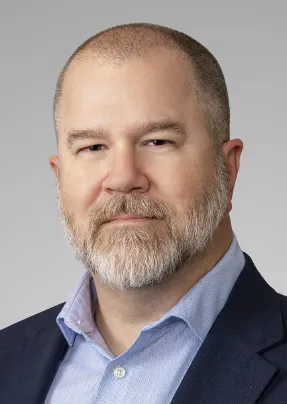
We know how to phase these deliveries and schedule the trades, so they have the confidence they need to mobilize and know that they will have continuous progress until they're done. I think that is reflected in the pricing we get back from them.
Are construction costs and supply chains improving?
We're seeing relief in the supply chains that we had some trouble with over the last few years, especially coming out of COVID. We're also seeing some of the subcontractors come back to actively pursue work. Usually, we're chasing them, and now they're looking for opportunities.
We're seeing some pressure ease off labor because of slower starts. A lot of those guys are finishing up jobs. The framers are finishing. The [drywallers] are finishing. And we're seeing some of those trades come back to the market in a little bit more abundance than we've experienced over the last several years.
How are you evaluating new construction technologies?
Our industry has always been one that doesn't like to change a whole lot, especially as technology comes in. We’ve seen the Katerras of the world trying to create a more efficient process to cut down some of those timelines and cut down some of the costs. And we haven't really seen that shakeout — the modularization of building apartments.
We've always built a very customized, high-quality product. Every project is pretty much a new design because it's in a different place. We want to design for the environment that we're in, and it's hard for a company like ours to adopt something that really standardizes every project. That works for some developers, but that's just not our formula.
Click here to sign up to receive multifamily and apartment news like this article in your inbox every weekday.



